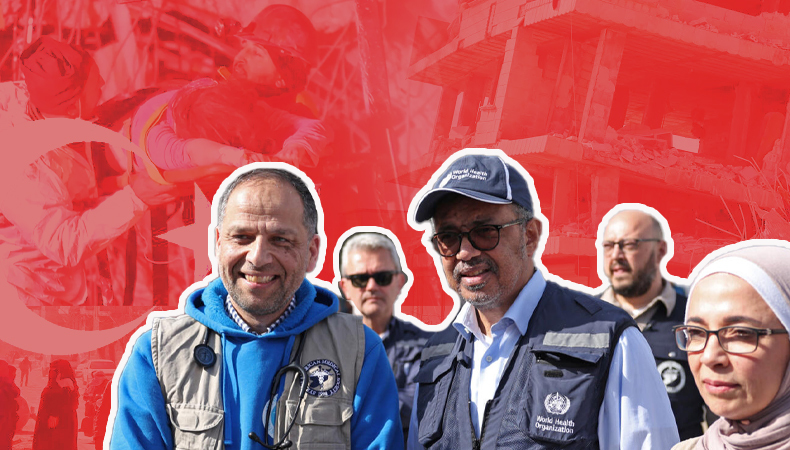WHO chief enters Syria for first time since earthquake

Tedros Adhanom Ghebreyesus, the director-general of the World Health Organization, travelled to earthquake-devastated districts of rebel-held northwest Syria on Wednesday, according to an AFP correspondent.
Tedros visited the government-controlled regions of Aleppo and Damascus the week before the accident, making him the highest-ranking UN representative to do so since the earthquake on February 6.
He entered Syria on Wednesday from the adjacent Turkiye via the Bab Al-Hawa crossing, according to the correspondent, and he visited a number of hospitals and a refuge for the displaced.
Activists and rescue teams in the rebel-held northwest criticised the UN’s tardy response after the earthquake, contrasting it with the planeloads of humanitarian aid that have been transported to airports under government control.
Around 258 planes carrying relief, including 129 from the United Arab Emirates, have arrived in regime-controlled areas.
Read | Why fights between Israelis and Palestinians in West Bank persists despite US intervention
On February 12, UN Relief Chief Martin Griffiths acknowledged that the organisation had “so far failed the people in northwest Syria.” Since then, a $397 million appeal has been made by the UN to aid earthquake victims in Syria.
Since the disaster, 420 trucks carrying UN aid have reportedly entered the rebel-held area, according to the UN.
The north and northwest of Syria are home to more than 4 million people, 90 percent of whom are dependent on help for survival.
On February 9, three days after the earthquake, the first UN assistance convoy entered the region and brought tents and other supplies for 5,000 people that had been anticipated before the catastrophe.
The only method for help to enter without Damascus’s consent is through the Bab Al-Hawa crossing in the neighbouring country of Turkiye, where the UN mostly distributes aid to northwest Syria.
The bridge is situated in the Idlib province, which Hayat Tahrir Al-Sham, a jihadist organisation, rules and which UN representatives hardly ever visit.
On February 12, the head of the WHO reported that Assad had indicated a willingness for additional border crossings so that aid could be sent to earthquake victims in the rebel-held northwest.
Similarly, on February 13, the UN reported that Damascus has granted it permission to utilise Bab Al-Salama and Al-Rai, two additional crossings in regions beyond its control, for a period of three months.




